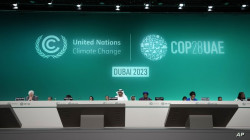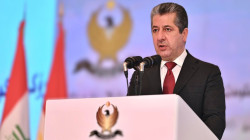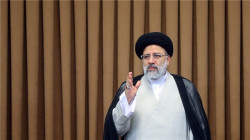COP28 climate summit concluded with an agreement to transition away from fossil fuels

Shafaq News/ On Wednesday, delegates at the United Nations COP28 climate talks in Dubai agreed to a deal that would, for the first time, push nations to transition away from fossil fuels to avert the worst effects of climate change.
COP28 President Sultan al-Jaber considered the agreement approved by about 200 countries a "historic package."
"We have language on fossil fuel in our final agreement for the first time ever," said al-Jaber.
Sources familiar with the discussions said to Reuters that Al Jaber had faced pressure from Saudi Arabia, the de facto leader of the OPEC oil producers' group, to drop any mention of fossil fuels.
Negotiators and observers in the COP28 talks told Reuters that while Saudi Arabia has been the strongest opponent of anti-fossil fuel language in the text, other OPEC and OPEC+ members, including Iran, Iraq, and Russia, have also resisted a fossil fuel phase-out deal.
The Director of Environmental Changes at the Iraqi Ministry of Environment, Yousef Muayyad Al-Hadithi, clarified that the COP28 agreement did not include a "phase-out" of fossil fuels. Instead, it calls for "transitioning away from fossil fuels."
That transition would be in a way that gets the world to net zero greenhouse gas emissions in 2050 and follows the dictates of climate science, according to the deal.
Fossil fuels originate from the decomposition of plants and animals within Earth's crust and comprise carbon and hydrogen that can be utilized for energy through combustion.
Coal, oil, and natural gas are prominent examples of fossil fuels that are nonrenewable resources.
These fuels have contributed significantly to almost three-fourths of emissions from human activities in the last two decades.





